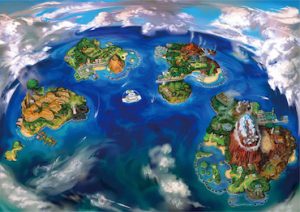I typically write about the books we read each week, but due to not having an assigned book this week, I decided to go over the movie that we watched on Tuesday: Mississippi Masala.
I don’t typically research into India or its history, due to my main interests being more directed towards eastern and southeastern Asia, but I couldn’t help but be amazed by how there were Indians who were born and raised in Africa for generations. As the movie depicts with the main characters, they have never been to India; the only home they know of is Uganda. However, after dictator Idi Amin declares that the Asians be forcibly removed from the country, the main characters Jay, Kinnu, and Mina (along with the many other “non-black” Africans) leave the continent of Africa and are sent to unfamiliar countries. Jay and his family originally went to England, but soon moved to Mississippi in the U.S.
The number one theme from this movie that stood out to me was how it addressed racism between minorities. In most movies, it’s black people vs. white people, and, while this should be covered, it often overshadows other forms of racism as well (you could say people are seeing this from a “black and white” point-of-view). In this movie, it covers African-Americans and Indian-Americans as they both struggle to make a living in Mississippi, as well as Ugandan-Indian’s (?) treatment and unnecessary removal from Africa. Though they do include snippets of racism from white people, it is not the focus of the movie.
The most blunt example of this is, as mentioned before, Idi Amin’s declaration that Asians be removed from the country. In the movie, he states that Indian people live much better lives than black Africans, going on to say that they are rich while the black Africans are poor. Jay’s brother, who is a black African himself, tells him something similar to this: Uganda/Africa is for black people. I believe that he meant these words, though it wasn’t his own feelings; it was what was happening to Uganda under Amin’s rule. I don’t believe that he wanted his brother to go but believed that Jay had to, for the safety of both him and his family.
Another example that stood out to me was Mina and Demetrius’s break-up. Before meeting Mina, Demetrius had worked very hard to start his own carpet cleaning company and was living decently. However, after people discovered his inter-racial relationship with Mina, everyone started to close their doors to him, making him flatout poor and out-of-business in a matter of weeks. Something as simple as a relationship managed to make him lose everything he worked hard for, all because he was in love with an Indian girl (who, to add on to this simplification, had never been to India and was born in Africa).
Overall, the struggle of self-identity, as with a majority of the other books we have read and movies we have watched, is a major theme in this movie. It shows us that this question can bounce around in one’s mind for a very long time, as seen with Jay and his fruitless attempt to sue the Ugandan government and go back to Uganda and live his life there. He only realizes that “home is where the heart is” upon realizing that Uganda has changed a lot since he has been gone (especially with his brother’s death), and that he wants to spend out the rest of his days with his loving wife who has been with him since the very beginning. The same could be said about Demetrius and Mina as well; they decide to just book it away from this town instead and head to California for a better life, where they can be free to love each other and live a better life.
